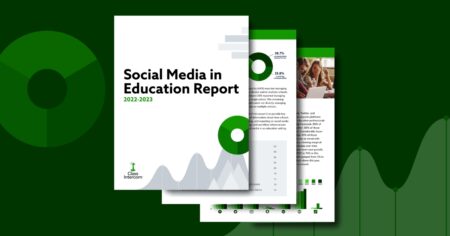Class Intercom, the leading provider of school social media management software, has announced the release of its annual Social Media in Education Report. The report, now in its fifth year, provides an in-depth analysis of the current landscape of social media within schools and school districts based on voluntary survey data collected from educators, administrators, school PR professionals, and other professionals within the sector.
The report aims to provide key sector insights into how schools are using, managing, and reporting on social media and the technology and workflow infrastructure surrounding social media in an education context. Its findings include in-depth discussions in eight key areas:
- How Schools Use Social Media
- How Schools Approach Paid Social Media
- The Content Schools Post on Social Media
- Content Creation, Collaboration & Management
- Archival & Open Records Requests
- Student Contributions to School Social Media
- Research-Based Educational Strategies Surrounding Student Participation
- Outcomes Observed with Student Involvement in Social Media
The report’s findings offer pertinent insights into how schools and school districts are adopting social media, creating and planning content for it, and managing the logistics of that content. This includes surveyed information about content generation workflows, oversight, and approvals. It also includes discussions about student-generated and student-sourced content in schools and districts where students have (controlled) access to their schools’ social media channels.
“There are substantial opportunities for schools and educators to root their social media programs in research-based educational strategies,” explains lifelong-educator-turned-edtech-leader Dr. Jill Johnson, noting that schools are increasingly including students in their content creation processes. “When students become involved in planning, creating, and executing social media content, they learn deeper skills like copywriting, interviewing, storytelling, editing, design, and point of view. They also form real-world understanding of broader concepts like storytelling, student voice, and community building.”
For more information about the 2023 Social Media in Education Report or to download it free, visit: https://classintercom.com/downloadable/social-media-in-education-annual-report-2023/
